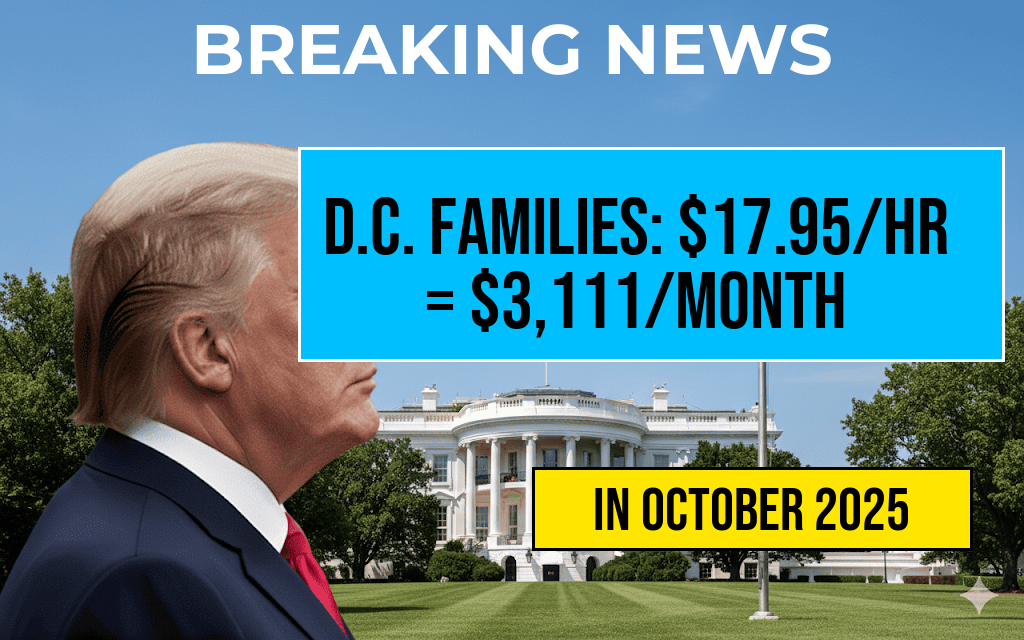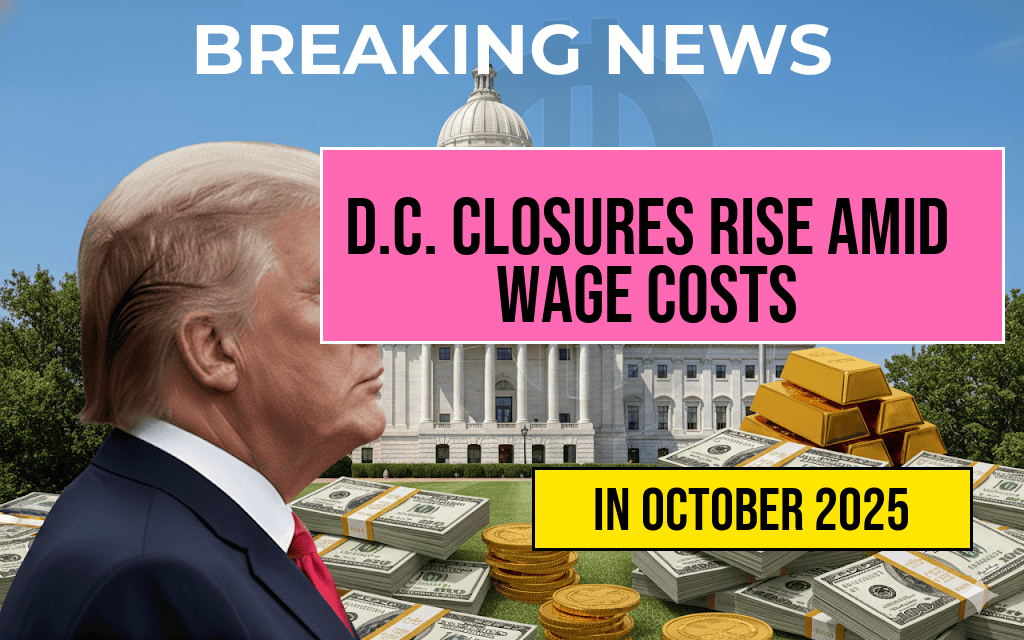DC Families Face Challenging Reality: Earning $17.95 per Hour Equates to a Monthly Income of $3,111 Before Taxes
For many families residing in Washington, D.C., the gap between income and living costs remains a pressing concern. Earning the federal minimum wage of $17.95 per hour, a standard for many entry-level employees, translates into approximately $3,111 before taxes each month based on full-time employment—defined as 40 hours per week. While this figure might seem substantial at first glance, it falls significantly short of D.C.’s high cost of living, which includes expenses such as housing, transportation, healthcare, and childcare. With the city ranked among the most expensive in the nation, families earning this wage often find themselves navigating financial strain, making it increasingly difficult to cover basic needs without assistance or supplemental income.
Understanding the Income Calculation
| Hourly Wage | Hours per Week | Weeks per Year | Gross Annual Income | Monthly Income (Before Taxes) |
|---|---|---|---|---|
| $17.95 | 40 | 52 | $37,308 | $3,109 |
This calculation assumes consistent full-time employment at 40 hours per week year-round. The gross annual income of approximately $37,308 is then divided by 12 months, resulting in a pre-tax monthly income of about $3,111. However, the actual take-home pay, after federal, state, and local taxes, tends to be lower, often by hundreds of dollars, depending on deductions and credits.
Cost of Living in Washington, D.C.
According to the U.S. Census Bureau, D.C.’s median rent for a one-bedroom apartment exceeds $2,200 per month, a figure that has risen steadily over the past decade. Transportation costs, including Metro fares and vehicle expenses, add to household budgets, while healthcare and childcare prices further stretch limited incomes. The Economic Policy Institute highlights that the typical family needs an income of over $80,000 annually to comfortably afford basic expenses in the city—a stark contrast to the salary derived from minimum wage work.
The Impact on Families and Policy Responses
Many local advocacy groups argue that earning $17.95 per hour is insufficient for a family to meet their needs without assistance. The DC Fiscal Policy Institute reports that a significant portion of residents work multiple jobs or rely on public assistance to make ends meet. This economic hardship fuels ongoing debates about increasing the minimum wage or implementing targeted relief programs.
Broader Economic Context
While some states and cities have raised their minimum wages to align more closely with local living costs, D.C. has maintained a relatively stagnant rate compared to its soaring housing prices. The city’s push for a higher minimum wage aims to reduce income inequality, but critics contend that without accompanying measures—such as affordable housing initiatives—the impact on low-income families remains limited.
Key Takeaways
- $17.95 per hour equates to approximately $3,111 monthly before taxes for a full-time worker in D.C.
- The city’s high living costs mean this income often falls short of covering basic needs for families.
- Advocates call for wage increases and policy reforms to bridge the affordability gap.
- Many families depend on multiple income sources or public assistance to survive.
Looking Ahead
Addressing the affordability crisis in Washington, D.C., requires a comprehensive approach that considers both wages and housing costs. As discussions around raising the minimum wage continue, stakeholders emphasize the importance of supporting working families through sustainable economic policies that promote upward mobility and stability. The challenge remains ensuring that earnings keep pace with the city’s rising cost of living, reducing the financial burdens faced by countless households.
Frequently Asked Questions
What is the hourly wage needed to earn a monthly income of $3,111 before taxes in D.C.?
To earn a monthly income of $3,111 before taxes in D.C., a family must earn approximately $17.95 per hour based on full-time work hours.
How many hours per week are considered full-time for this calculation?
This calculation assumes a standard full-time schedule of 40 hours per week, which is typical for many full-time jobs.
Does this income cover all family expenses in D.C.?
While earning $3,111 monthly before taxes provides a baseline, actual expenses such as housing, transportation, and childcare may vary, and families might need higher income levels for comprehensive coverage.
What factors could affect the actual take-home pay for families earning $17.95 per hour?
Factors such as tax deductions, benefits, and additional withholdings can reduce the net income families take home from a $17.95 hourly wage.
Is $17.95 per hour considered a livable wage for families in D.C.?
For some families, $17.95 per hour may be close to a livable wage, but many may find it challenging to cover all expenses comfortably due to the high cost of living in D.C.









